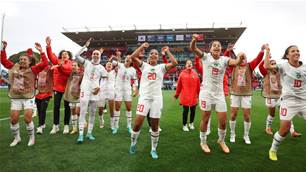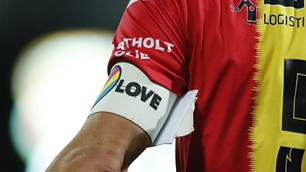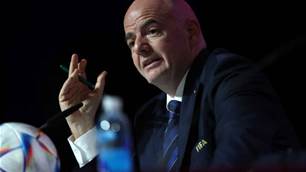THE FILE of evidence against the two FIFA members accused of bribery includes copies of emails sent by Jack Warner to Mohamed Bin Hammam about meeting CONCACAF associations.
The pair, who have been charged by FIFA with offering bribes in connection with Bin Hammam's campaign for FIFA president, are to appear before the world governing body's ethics committee on Sunday. They both deny any wrongdoing.
The file of evidence, compiled by US lawyer John Collins at the request of the USA's FIFA executive member Chuck Blazer, includes signed affidavits from several witnesses who allege they were offered bundles of cash of up to 40,000 US dollars (£24,400).
It can now be disclosed that an email trail also forms part of the evidence file. The emails show Bin Hammam requesting that Warner organise a special congress to meet associations from CONCACAF, the confederation of countries from north and central American and the Caribbean.
The request was for a special congress to be held before the planned CONCACAF Congress in Miami on May 3, and to be held outside of the USA. Warner then emailed Blazer, who is also secretary general of CONCACAF, saying: "Let's make this happen", according to the evidence file.
Blazer however blocked the move, and Bin Hammam did not attend the CONCACAF Congress in Miami, citing visa problems even though he has a diplomatic passport. Warner instead organised for a meeting of the 25 Caribbean countries in Trinidad on May 10 - and it is at this conference, it is claimed, that the money was handed over for "development projects".
Some of the bundles of cash were accepted, the file says, but some of those who refused to take any money approached Blazer, who then instructed Collins. The lawyer interviewed witnesses, took affidavits and also collected photographic evidence for a file that was then sent to FIFA general secretary Jerome Valcke earlier this week.
Bin Hammam and Warner have both suggested that the corruption charges are smear tactics ahead of the FIFA presidential election on June 1 in Zurich.
FIFA today announced that they will hold a news conference in Zurich on Sunday evening following the outcome of the ethics committee hearing.
It is not the first time in recent FIFA history that there have been allegations of vote-buying before presidential elections.
Blatter himself made the remarkable claim that there was vote-buying at his first victorious FIFA election in 1998.
Investigative journalist Andrew Jennings reported in his 2006 book 'Foul!' allegations that bundles each containing 50,000 US dollars were handed out to African delegates at the Meridien Montparnasse hotel in Paris, supposedly for development projects.
Blatter has always vehemently rejected any suggestions that he was linked with vote-buying, but earlier this year appeared to suggest that somebody else was involved.
Blatter told a news conference in March, after being asked about FIFA's reputation being damaged by allegations of corruption: "It's not easy to change somewhere where people started by saying you have bought votes in your first election.
"Who has bought votes in the first election? Go down to Paris in June 8 1998 in the Meridien Montparnasse.
"I was not there because they expelled me from FIFA at the time, and then you will see who has bought votes.
"That was somebody...it doesn't matter now. You have just asked me as president and I have just explained before."
Blatter's reference to being "expelled from FIFA" was in relation to his having had to step down as general secretary in order to stand for president.
The claim by Blatter is understood not to have been directed at Johansson, who has never been the subject of such allegations.
Related Articles

Morocco blazing a trail for Arab women's football participation

FIFA blasted for OneLove armband threat













